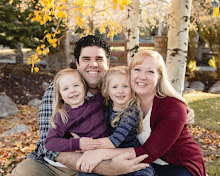Sometimes my favorite part of words is where they come from. And of course, how they sound and what they mean! See exhibits 1 through 9:
milquetoast \MILK-tohst\, noun:
A very timid, unassertive, spineless person, especially one who is easily dominated or intimidated.
Milquetoast is after Caspar Milquetoast, a character in The Timid Soul, a comic strip by H. T. Webster (1885-1952), American cartoonist.
weltschmerz \VELT-shmerts\, noun:
Sentimental pessimism; sorrow that one feels and accepts as one's necessary portion in life.
Weltschmerz comes from German welt, "world" and schmerz, "pain." The term was coined by Jean Paul Richter in 1810.
gadabout \GAD-uh-bout\, noun:
Someone who roams about in search of amusement or social activity.
Gadabout is formed from the verb gad, "to rove or go about without purpose or restlessly" (from Middle English gadden, "to hurry") + about.
bellwether \BEL-weth-uhr\, noun:
A leader of a movement or activity; also, a leading indicator of future trends.
Bellwether is a compound of bell and wether, "a male sheep, usually castrated"; from the practice of hanging a bell from the neck of the leader of the flock.
chichi \SHEE-shee\, adjective:
Affectedly trendy.
From the French word that literally means "curl of false hair"; used figuratively in the phrases faire des chichis, "to have affected manners, to make a fuss"; and gens à chichis, "affected, snobbish people." Sometimes spelled "chi-chi."
holus-bolus \HOH-luhs-BOH-luhs\, verb:
To cleanse.
Holus-bolus comes from a mock-Latin rhyming compound based on the phrase "whole bolus."
pecksniffian \pek-SNIF-ee-uhn\, adjective:
Hypocritically and smugly affecting benevolence or high moral principles.
Pecksniffian is named after Seth Pecksniff, a character in "Martin Chuzzlewit, a novel" (1843), by Charles Dickens.
And sometimes there is just this:
willowwacks \WIL-oh-waks\, noun:
A wooded, uninhabited area.
Willowwacks is of uncertain origin.
Love it.
Friday, October 7, 2011
Subscribe to:
Post Comments (Atom)

No comments:
Post a Comment